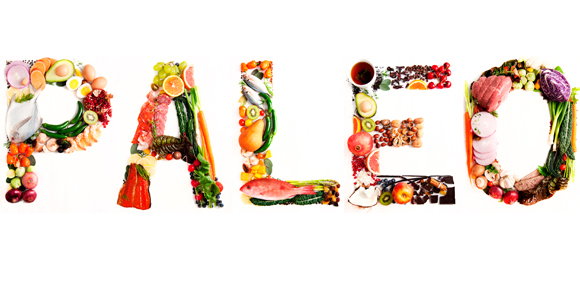The Paleo Diet was written by Dr. Loren Cordain Ph.D. The main premise of this diet focuses on consuming foods that our hunter-gatherer ancestors would have consumed. For this reason, the diet is devoid of any chemically processed foods since that was not available during the pre-agricultural and pre-factory produced era. Since our diets now-a-days are saturated full of processed foods, this Paleolithic way of eating does have its perks. Here's everything you need to know.
Protein
Since hunter-gatherers consumed mainly protein sources, not surprisingly protein takes the main stage when discussing the Paleo Diet. The focus of protein consumed should be lean protein sources including chicken, turkey, pork tenderloin, fish and other seafood, and eggs. Meats including hot dogs and spam should be excluded due to their high fat content and processed nature. Nuts and seeds, abundant in healthy fats and fiber, are also a primary protein source on this diet. Almonds, cashews, pecans, walnuts, hazelnuts, pumpkin and sunflower seeds all make the list. Unfortunately, the great nutrition found in legumes is not recommended for consumption on this diet. This includes all beans, peas, peanuts, peanut butter, lentils and soybeans.
Produce
There's an abundance of fruits and vegetables on this diet. The high fiber and antioxidant properties of produce should make them the top of every healthy diet. Fresh fruits and vegetables are not processed and were readily available during the hunter-gatherer era making them an essential part of their diets, as it is for us now. Certain starchy vegetables including potatoes, sweet potatoes and squash should be limited due to their higher starch content.
Oils
Enjoy a variety of healthy fats including olive oil, walnut, avocado, flaxseed and coconut oil. Processed margarines and vegetable oils were not available during the Paleolithic era, so, according to this diet, they are a big no-no for us to consume. If you do want to eat butter, aim for grass fed due to its nutrient-rich profile.
Say No To Processed Grains and Sweets
One of the major advantages of the Paleo Diet is eliminating one of the largest culprits linked to obesity and other diseases in the American diet: sugar. Sodas, candies, cookies, chips and energy drinks are all excluded leaving you with a more whole foods-based approach. Although there are benefits to consuming grains in moderation, all grains are eliminated from Paleo as well. Say goodbye to cereal, bread, oatmeal and pasta.
Say No To Dairy
Aside from grass-fed butter, all other dairy items are eliminated since these were not available to our Paleolithic ancestors. Although there are nutritional benefits to consuming dairy, cutting out your consumption of cheese, milk, ice cream and yogurt will also help to limit some unnecessary calories.
Say No To Alcohol
We know that excess alcohol can lead to weight gain and regular consumption can make it difficult for us to maintain our healthy food choices. Almost all alcohol is excluded in Paleo, including beer, whiskey, tequila, rum, vodka and any alcohol with added mixers. But no worries, wine can still be enjoyed in moderation.
Dietitian's Take
The idea of focusing on a whole, plant-based approach to nutrition is wonderful. Limiting refined sugars and other highly processed foods, which unfortunately are abundant in the American diet, is a huge plus in this diet. Many can benefit from a diet focused on lean proteins and a variety of produce. Although the Paleo Diet does focus on consuming lean proteins, more research is suggesting a link between high consumption of protein and increased risk of certain types of cancer and diabetes. The issue is finding balance and moderation. A diet full of plant-based proteins also has many nutritional benefits. For that reason, I do feel that peanuts and other legumes should not be restricted since they provide a great source of fiber and other essential nutrients to our diets.
Kristen Bourque, RD, LD has been writing health-related articles since 2000. Her nutrition articles and recipes have been featured in "Today's Dietitian" as well as the Canadian magazine "Glow". Kristen combines her love of nutrition with cooking on her personal blog, Swanky Dietitian.



